2013
(And this is no joke!) |
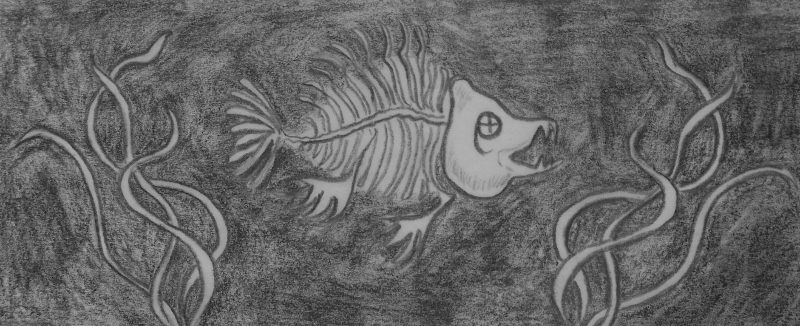
|
| ENDANGERED SPECIES LIST |
| *Contains levels of mercury or PCB that may pose health risks to children and adults. |
| Abalone, Black (awabi) |
critically endangered |
| Chilean Sea Bass* So.Ocean - wild |
endangered |
| Cod, Atlantic & Pacific (fish sticks) |
endangered |
| Conch, Queen - worldwide wild-caught |
endangered |
| Crab, King* (kani) - imported |
endangered |
| Eel, Freshwater (unagi) worldwide |
endangered |
| Flounder,Dab,Sole (hirame) wild |
endangered |
| Grouper,Snowy* (mero) wild-caught |
endangered |
| Halibut,Atlantic/Pacific (hirame) wild |
endangered |
| Mahi mahi,Dorado,Dolphinfish -imported |
endangered |
| Marlin,Blue (a'u kajiki) - imported/wild |
endangered |
| Marlin,Striped* (a'u nairagi) worldwide |
endangered |
| Orange Roughy* - worldwide/wild |
endangered or extinct |
| Pollock, Atlantic (surimi) - Iceland |
endangered |
| Red Snapper (kurodai) - Gulf of Mex. |
endangered |
| Salmon*,Atlantic/river (ikura) - wild |
endangered or extinct |
| Shark* (shark fin soup) - worldwide |
endangered |
| Shrimp,Tiger,White (ebi) import/wild |
endangered |
| Sturgeon,White,Beluga,Russian,Stellate
(caviar) - wild-caught
|
endangered or extinct |
Swordfish*, Broadbill, Emperador, Espada (shutome) - imported
|
threatened or endangered |
| Trout*, Lake Huron, Lake Mich. - wild |
endangered |
Tuna,Albacore* (canned white tuna)
(shiro maguro) - wild-caught |
endangered |
| Tuna, Blackfin* (toro maguro) Atlantic |
endangered |
| Tuna, Bluefin* (hon maguro) worldwide |
endangered |
| Tuna, Bigeye* (ahi maguro) worldwide |
endangered |
| Tuna, Yellowfin* (canned) worldwide |
endangered |
| |
| This is a partial list. For a complete listing of endangered seafood contact: |
| www.montereybayaquarium.org |
This is still 2012, the nightmare of global warming is ever-looming. Levels of green-
house gases are increasing at an alarming rate, in spite of many studies, much debate, and obstinate denials.
Our oceans cover about 71% of the planet, they help regulate our climate. Many species, including humans, depend on healthy oceans. But they are getting hit hard: Becoming too acidic, too polluted, and too over-fished. There are dead-zones off the coast of all the major continents, mainly due to agricultural and industrial run-off. Scientists estimate that 90% of the large fish in our oceans are already gone. Many sea mammals, amphibians, seabirds, and coral reefs are critically endangered. And if the guilt of gobbling up the remaining 10% of our large fish doesn't alter your eating habits, than how about the fact that many of these large fish contain unhealthy levels of mercury, PCBs, DDT, and now maybe even radiation poisoning. |
 |
| |
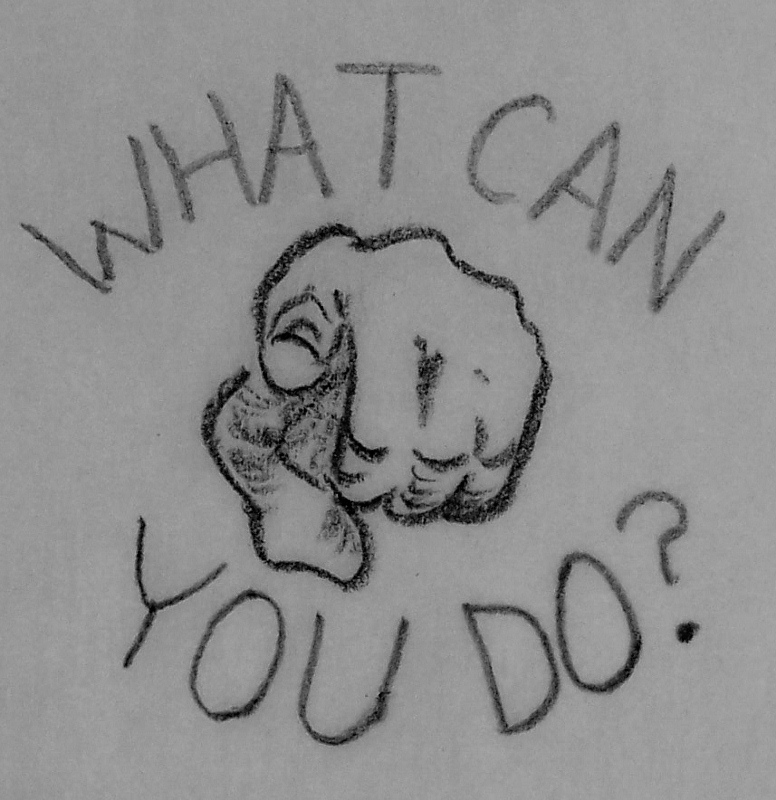 |
|
| |
- Be informed: Ask where your fish comes from, how it is caught, whether it is from a sustainable source, and how it is rated in terms of level of toxicity. Do not eat farm raised fish.
- Demand that your representatives in Congress do everything they can to promote and subsidize green energy, instead of subsidizing the mega-rich oil industry.
- Buy electric. Go solar. Consumers do have a voice.
- If your car has a diesel engine, convert it to biodiesel (it was originally designed to run on peanut oil).
- Buy local, organic produce and animal products.
- Move to higher grounds, stock up on supplies, batten down the hatches and hold on to your thumbs - because it's going to be a stormy ride!
|
|
|
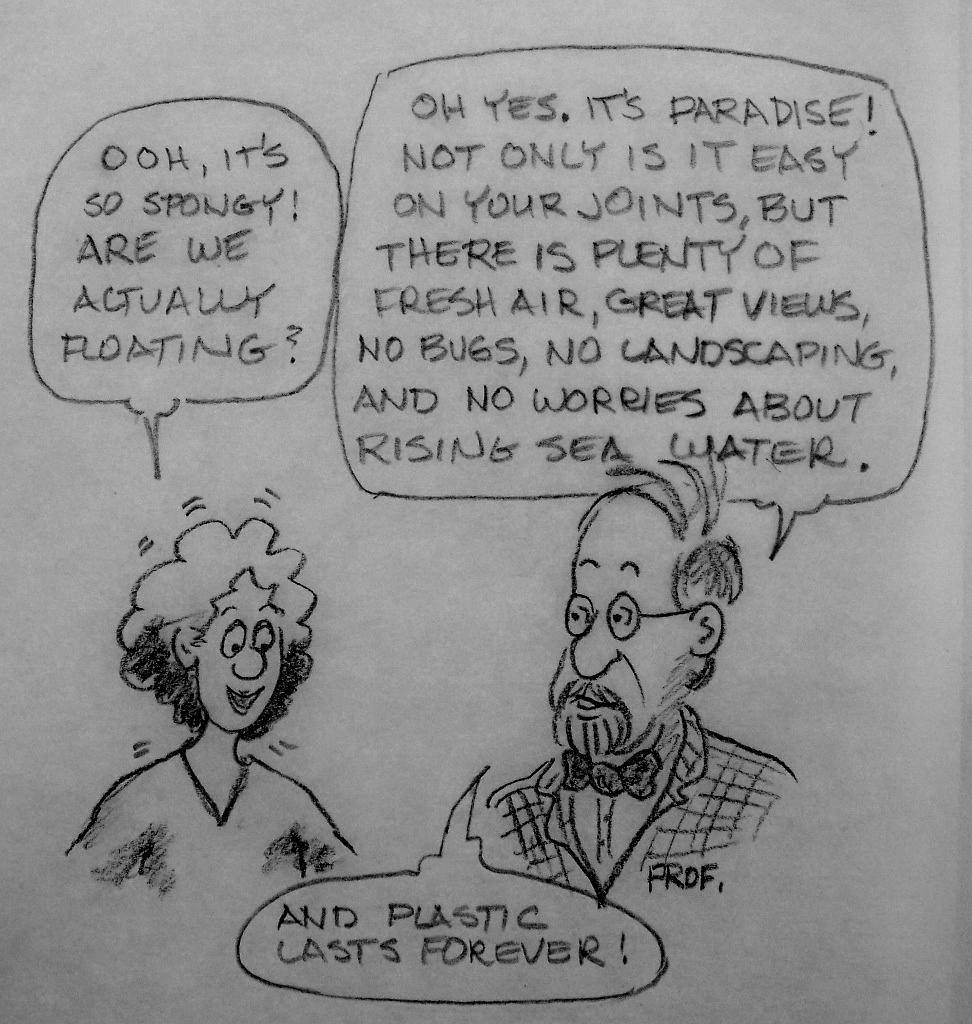


.jpg)
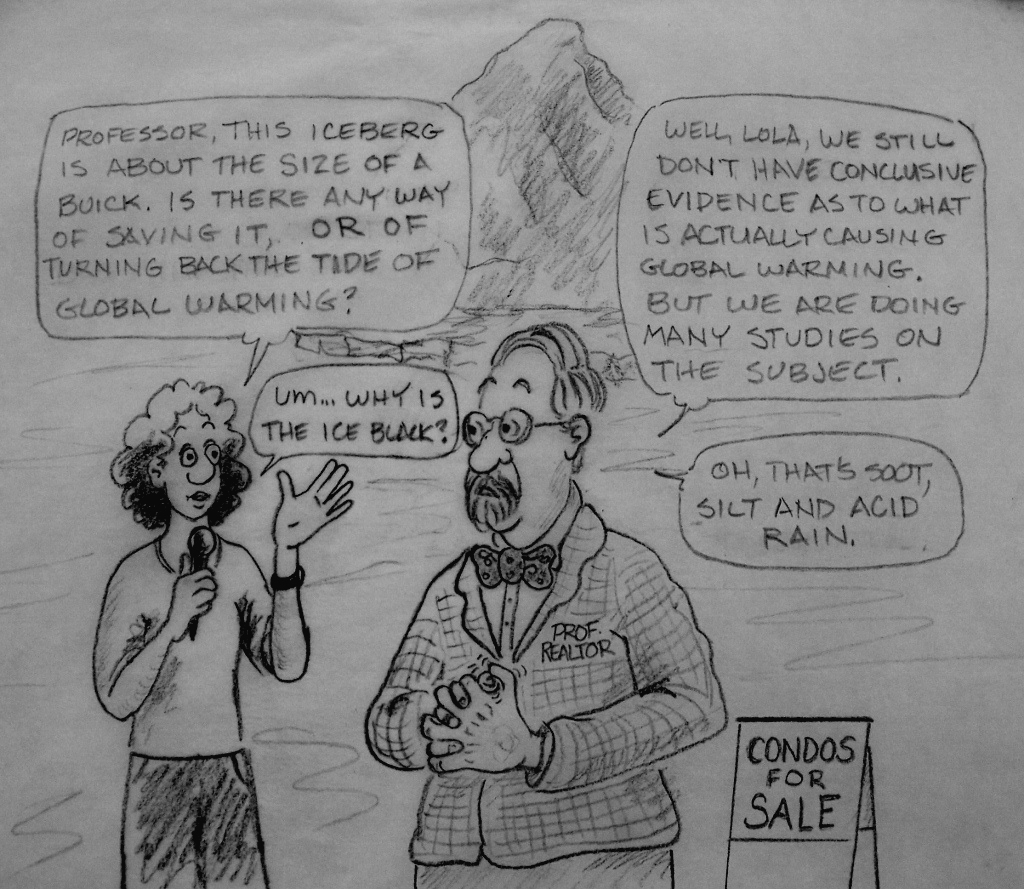
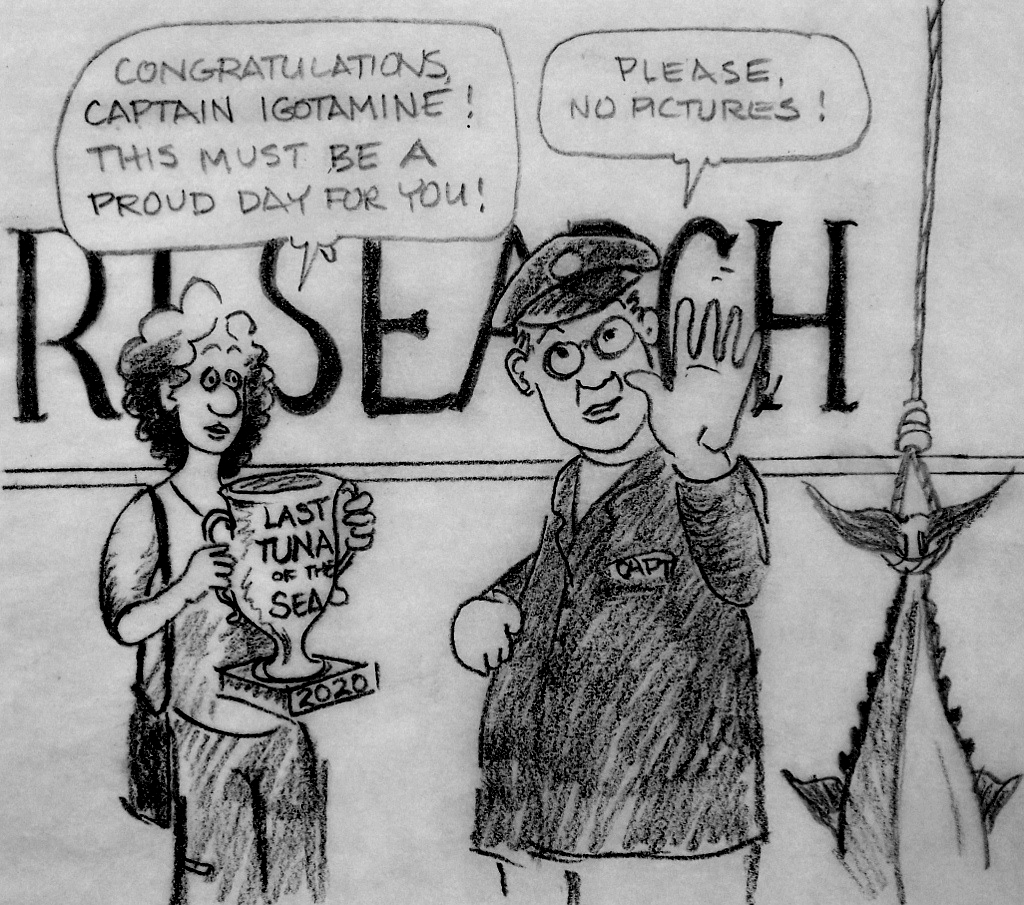
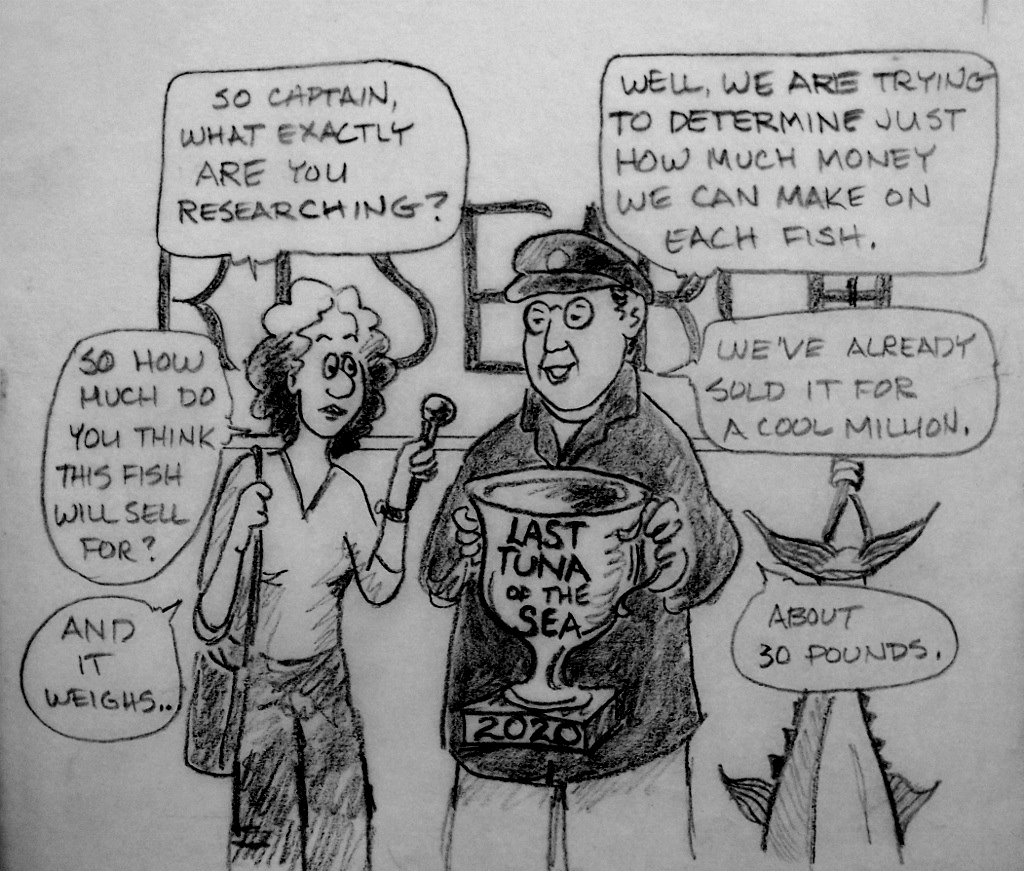
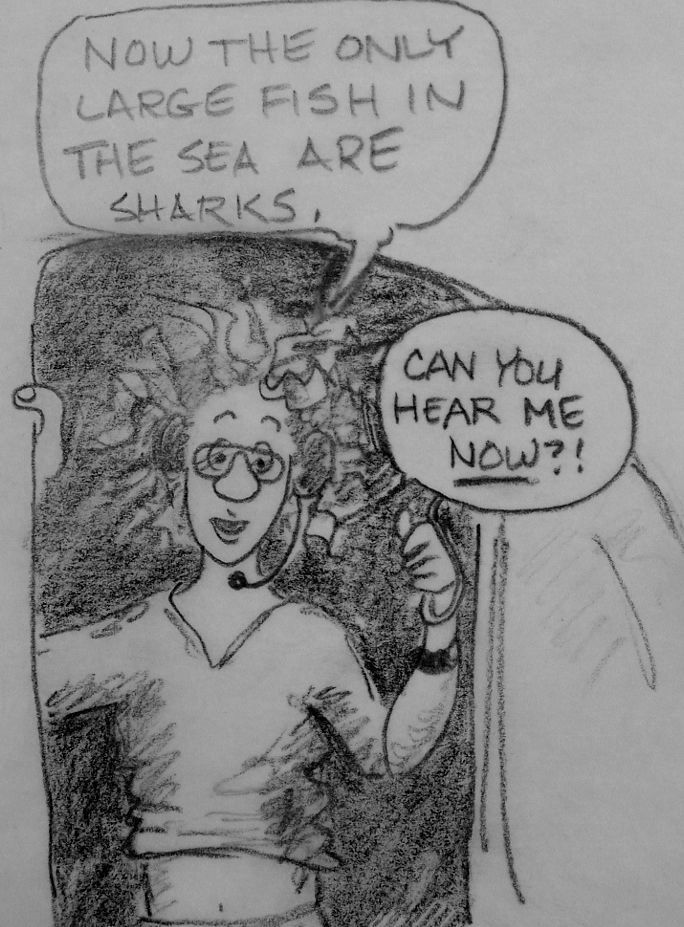
.jpg)
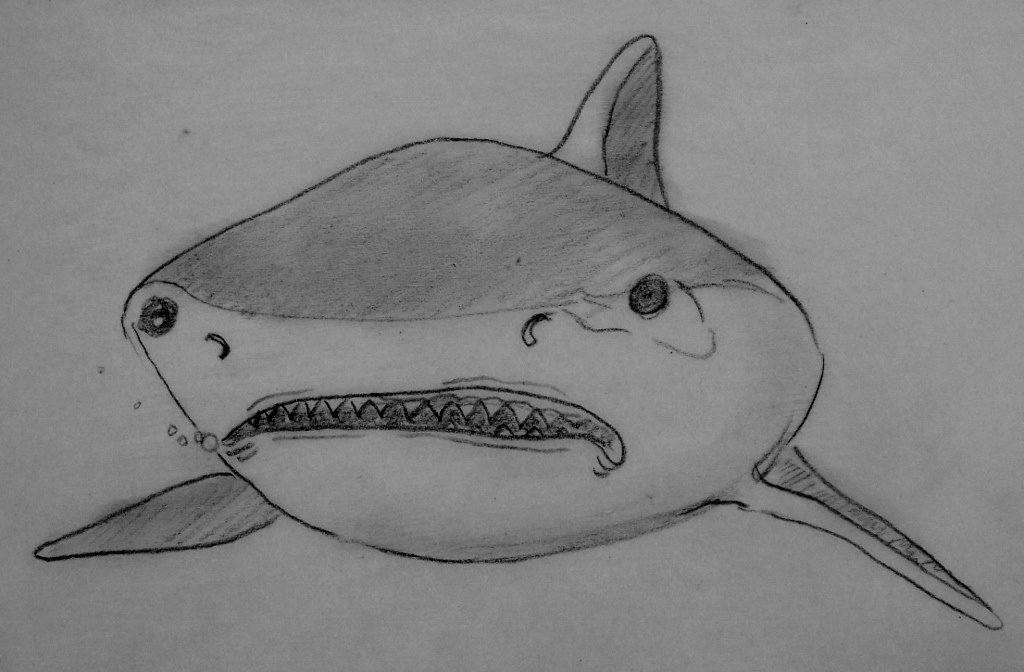
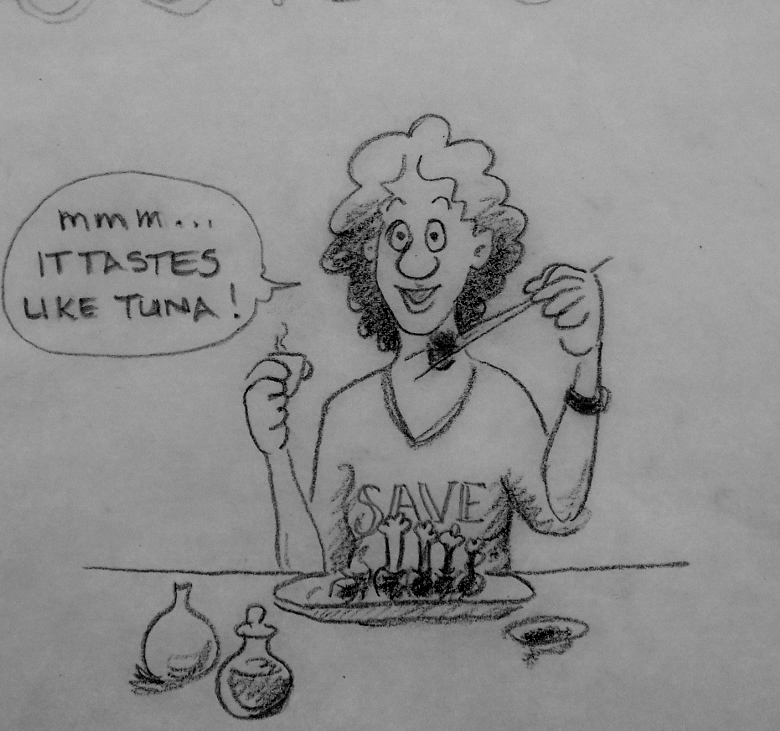
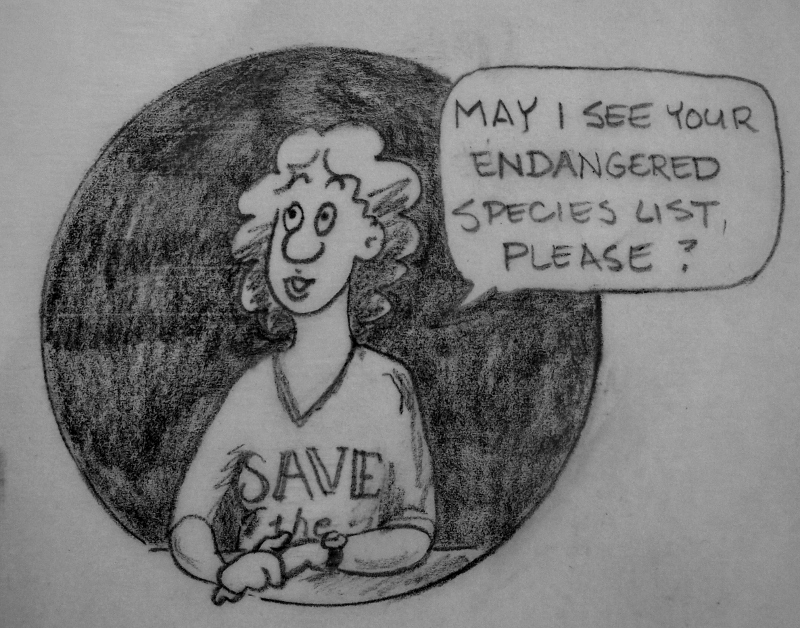
.jpg)